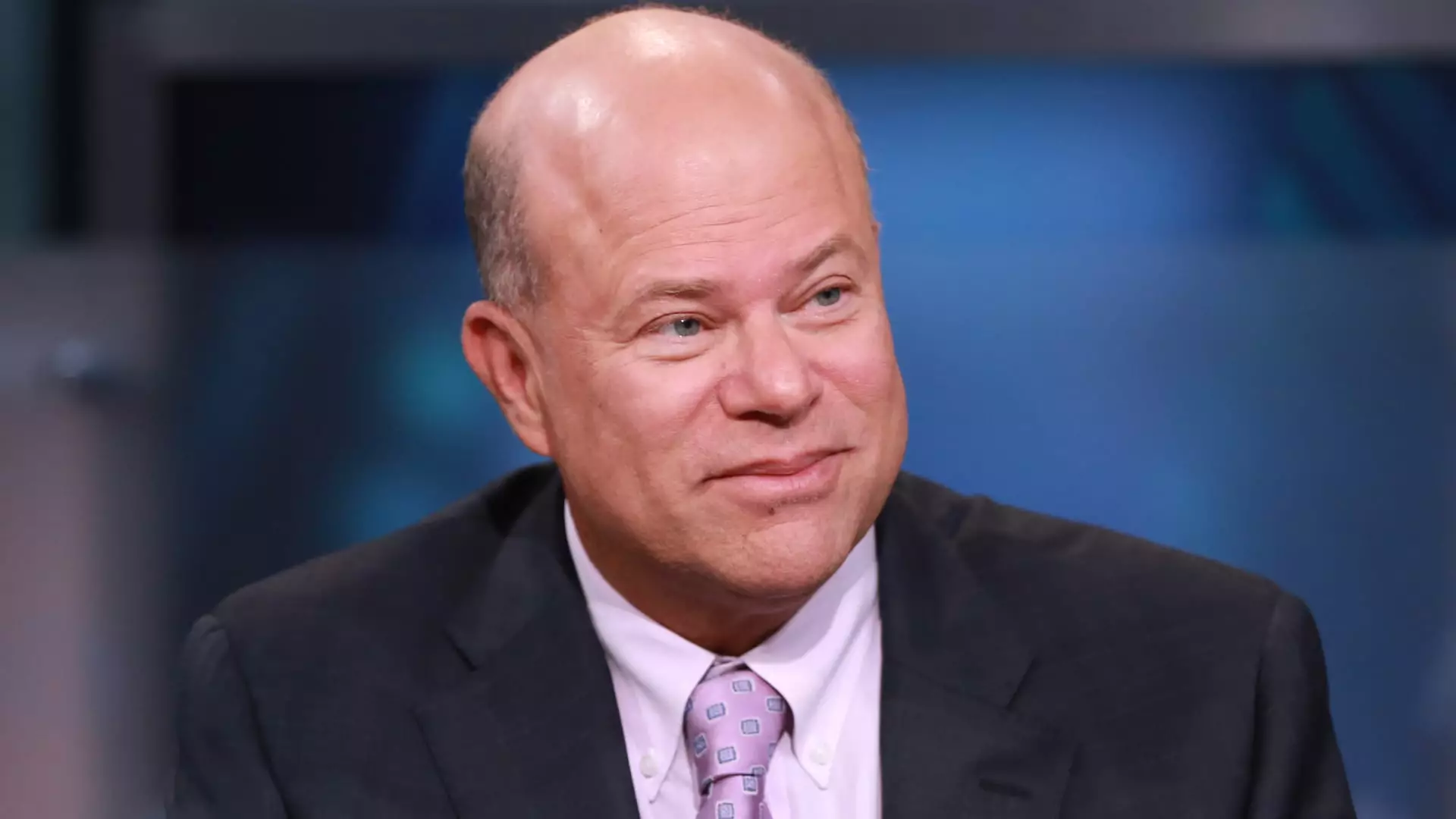In the ever-evolving landscape of economic forecasting, the role of the Federal Reserve (Fed) cannot be overstated. Recently, the influential hedge fund manager David Tepper provided insight into the implications of the Fed’s decision to lower interest rates. In his conversation on CNBC’s “Squawk Box,” Tepper emphasized the necessity for the Fed to maintain credibility in the eyes of investors. The current scenario raises numerous questions about the central bank’s strategy, the potential effects on the stock market, and whether Tepper’s hesitations are justified.
The Fed’s recent decision to cut interest rates by half a percentage point marks an important moment, as it initiates the first easing campaign in four years. Tepper contends that the Fed’s actions correspond with its words; if Chairman Jerome Powell implies an ongoing recalibration of monetary policy, investors should take these statements seriously. Tepper’s analysis suggests a fundamental trust in the Fed’s methodology. He posits that the central bank historically follows through on its commitments, particularly when it communicates such intentions with clear conviction.
However, the notion of trusting the Fed requires scrutiny. Tepper acknowledges the broader economic backdrop, noting that the central bank’s aggressive cut occurred amid an overall stable economy. While this may seem counterintuitive, it raises concerns akin to those faced in the late 1990s, as Tepper recalls the Fed’s rate cuts leading to a market bubble. Investors must consider whether the recent moves by the Fed reflect true economic necessity or if they are merely an attempt to stimulate an already robust economy. Evaluating this duality is crucial for making informed investment decisions.
While the cut sounds promising for potential market growth, Tepper expresses a degree of anxiety regarding the macroeconomic conditions in the U.S. Despite solid indicators—such as a healthy GDP growth forecast across the third quarter—the Fed’s decision was partly spurred by a slowdown in the labor market, which introduces significant risk.
The contradiction in this scenario is palpable. On one hand, metrics indicate strong consumer spending and positive GDP growth; on the other, signs of labor market stagnation raise alarms about long-term economic sustainability. Tepper seems to embody the classic investor’s dilemma: the immediate benefits of a lenient monetary policy must be weighed against the risk of future economic instability. He presents a candid assessment of his position in the U.S. equities market, acknowledging the benefits of easy money while simultaneously expressing concerns about the long-term trajectory.
Interestingly, Tepper’s outlook extends beyond the U.S. market. In light of the Fed’s rate cuts and recent indications of government support in China to revive its faltering economy, Tepper is pivoting towards Asian equities. This shift signifies an evolving narrative in global investment trends, whereby key players in finance start looking overseas for better growth prospects.
Furthermore, Tepper’s preference for European and Asian stocks over their American counterparts suggests a growing sentiment among top hedge fund managers to diversify portfolios amid potential volatility in the U.S. market. This raises the question of whether strategies focused on the American economy will be sufficient in a global landscape increasingly influenced by foreign markets.
David Tepper’s insights on the Federal Reserve’s monetary policy adjustments illuminate a complex economic environment. While he highlights the need for the Fed to follow through on its promises to maintain credibility, he also warns of potential pitfalls that could ensue from premature rate cuts in a stable economy. The macroeconomic landscape presents both opportunities and risks, which are essential for investors to navigate judiciously.
As Tepper illustrates a cautious commitment to U.S. equities while exploring international alternatives, his perspective serves as a reminder that adaptability remains crucial in investment strategy. In the face of evolving fiscal policies, inflation indicators, and global economic factors, investors must remain vigilant and informed to position themselves for both present benefits and future challenges.

